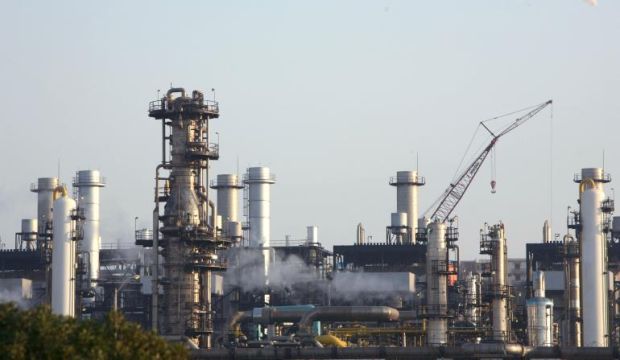
This undated file photo shows a liquefied petroleum gas refinery in Arzew near the western city of Oran Zohra, Algeria. (Reuters)
Algiers, Reuters—Algeria awarded four of 31 oil and gas field blocks on offer to foreign consortiums on Tuesday in its first attempt since a disappointing 2011 bid to draw investors to help offset its stagnant production.
Spain’s Repsol in partnership with Royal Dutch Shell won the Boughezoul area in the north of the country, while Shell and Norway’s Statoil won the Timissit area in the east. A consortium of Enel and Dragon Oil won the Tinrhert and Msari Akabli areas.
Algerian energy officials described the result as acceptable, but analysts said the North African OPEC member needed to do more to improve conditions and draw more foreign oil operators to the energy sector.
Algeria supplies a fifth of Europe’s gas needs, but it relies on mature fields for most of its energy output and looks to foreign explorers to help develop new reserves and increase flagging production.
“These are acceptable results, and we will continue with our energy sector development,” said Sid Ali Betata, head hydrocarbons agency ALNAFT, which oversaw the bidding. “This is a consolidation of our partnership.”
Foreign oil executives have in the past complained about Algeria’s tough contract terms, often difficult business environment and security worries, especially after a 2013 attack on the Amenas gas plant killed 39 foreign contractors.
Officials were optimistic before the bids, having delayed the auction twice after foreign players asked for more time to study the fields. They reported initial interest from 50 companies and cited incentives under a new oil law, improvements in security and the potential of the fields on offer.
The 2011 auction secured bids for just two fields out of 10, one from Spain’s Cepsa and the other from Algerian state energy company Sonatrach. But the new hydrocarbons law passed in 2013 offers tax and contractual incentives and benefits for unconventional energy investments.
Three of the fields auctioned on Tuesday were crude oil areas, while Msari Akabli is mainly a gas block.
“These results show partners are still not satisfied with the terms. I think they need improvement, and Algeria has to opt for more steps to attract more investment,” one Algerian energy expert said.
An increase in output is vital for a government that relies heavily on energy exports for state income and to pay for social programs, including food and fuel subsidies that have helped keep it stable amid turbulent times in North Africa.
Analysts say rising domestic energy consumption will also be a concern should Algeria fail to draw the kind of investment required to bolster its production. Oil output last year was 1.2 million barrels per day, about the same as in 2012.
Some of the 2014 gas blocks offered were from Algeria’s unconventional shale reserves, which are among the world’s largest and are largely unexplored. None was awarded in this round.
Algeria also has no experience of developing shale gas, which involves technologies such as hydraulic fracturing and horizontal drilling. Some analysts have questioned how the country will develop the infrastructure needed for shale.
Security has been a concern since the 2013 Amenas attack, which prompted BP and Norway’s Statoil to pull workers out. The kidnapping and beheading of a French tourist was a reminder of risks in the North African country, which fought a war against Islamist extremists in the 1990s.
Still, Statoil this month said the Amenas plant, which produced 11.5 percent of Algeria’s gas output before the attack, was due to return to full production soon after improvements in security.
“Security for employees is our top priority,” said Statoil’s Bjorn Kare Viken, a senior vice president for development and production. “Ensuring security is the job of the Algerian authorities.”
